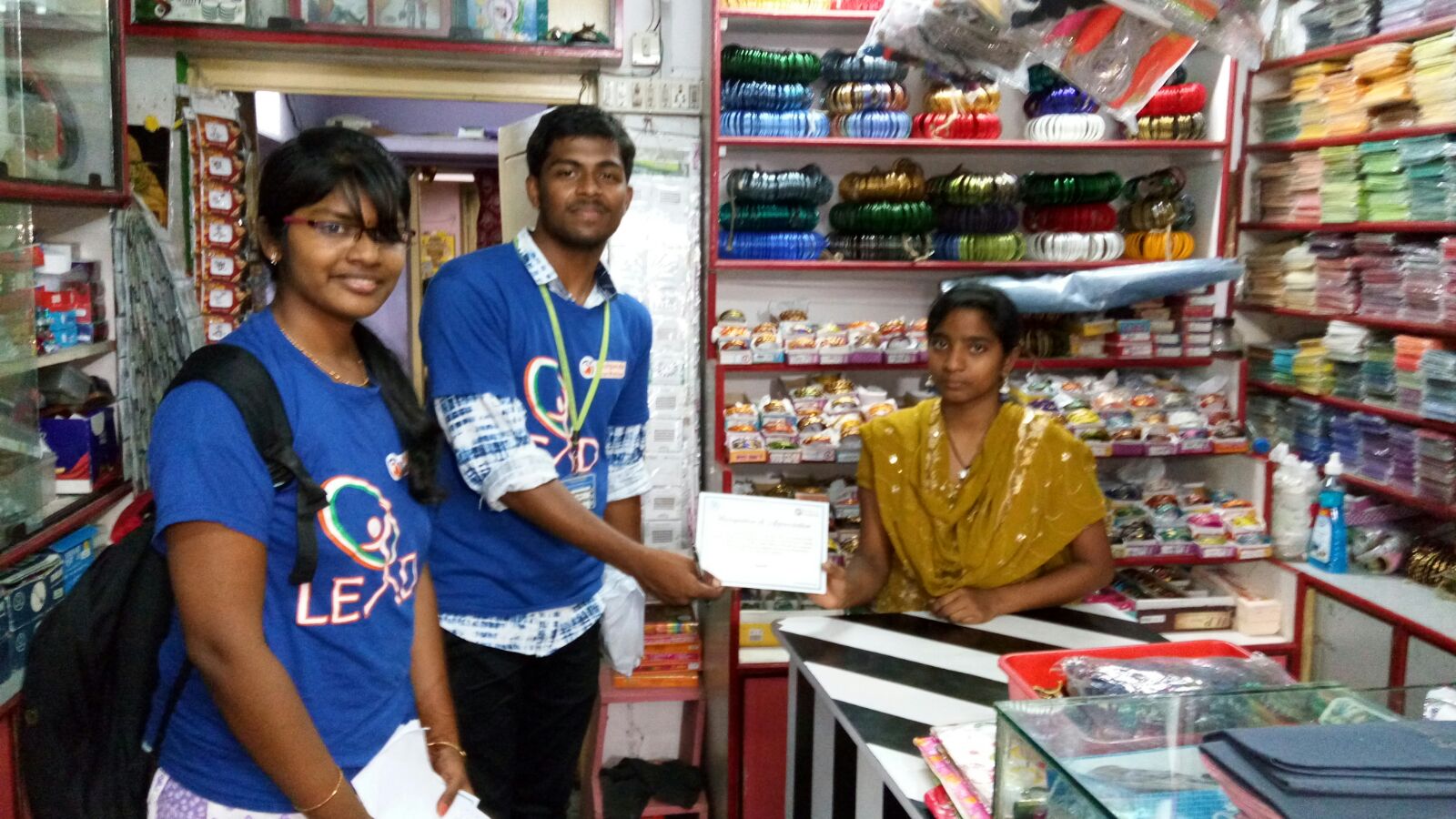My Story: Atheeq MD
Posted on Monday, February 10, 2014 by LEAD
Atheeq MD (REC, Hulkoti)
“Keep moving forward regardless of any hurdles that come in
your way.”
Most students have a lot of ability, but they
are rarely given the opportunity to tap into it. I used to consider myself to be a part of this group of
untapped potential. Hailing from
Raichur, an area in deep need of progressivism, I have taken advantage of my LEAD platform to combine my passion for chemical engineering with my
concern for society. Now entering my third year in LEAD, I have completed four projects so far, three of
them being of a technical nature.
Recycling of Waste Chalk
I noticed that a lot of chalk was being wasted at my
college. When chalk pieces became so worn down and so small that they
could no longer be gripped by the human hand, they would be thrown out. I contemplated this situation and
realized that these small pieces of “waste” chalk, when put together, could
create additional pieces of chalk, thereby saving schools and colleges precious
money. Through the simple process
of combining chalk dust with water, I devised a method to recycle
chalk. After his method was proved
to be successful, it was implemented at my own college as well as a government
school in Raichur.
Maglev Generator
While this project is still in progress, my Maglev
Generator serves as a more affordable innovation from existing generators. I first came up with the idea for
his Maglev Generator after seeing a generator with a tightly wound rotor, which
required more energy to produce power due to the existence of more friction.
This problem inspired me to create a frictionless rotor. The Maglev Generator relies on the
concept of magnetic levitation, which is being mostly used to propel high-speed
trains in countries like Japan and Germany. My generator requires less energy and produces
more power than normal generators.
Plastic to Crude Oil
I, like many others, had been observing the plastic
crisis for a while. Plastics are a
huge threat since they are not biodegradable. Many solutions to rid our planet of deadly plastics have
started to take form, but most of these solutions are still not affordable
enough to be adopted. With my
device, plastic can be burned and converted into crude oil, an unrefined
petroleum product which can later be refined to produce useful products such as
gasoline, diesel and more.
Essentially, hot air is fed into a process vessel. This air is continually recycled in a
loop to maximize heat loss. The
process vessel is isolated from oxygen and is exposed to a vacuum
environment. This energy is used
to depolymerize the plastic into crude oil. My method is more affordable than others
because it relies on charcoal to catalyze the process, whereas other models do
not rely on any catalysts. I am
still working on my model to make it more cost effective.
Although I faced many challenges in his projects,
overcoming these challenges have presented me with great learning
experiences. Joining LEAD not only
gave me the opportunity to express talent and knowledge, it also gave me the courage to defend my own ideas and the ability to convince others of my ideas. In each of my
initiatives, my fellow students made fun of me because I
was doing something different. At
one point, the disapproval from my peers made me lose motivation. Eventually, though, I ignored their
negative remarks and continued working on my projects. Now that my projects
have been successful, I have the confidence to work on crazier
ideas in the future.
Subscribe to:
Post Comments (Atom)









No Response to "My Story: Atheeq MD"
Post a Comment